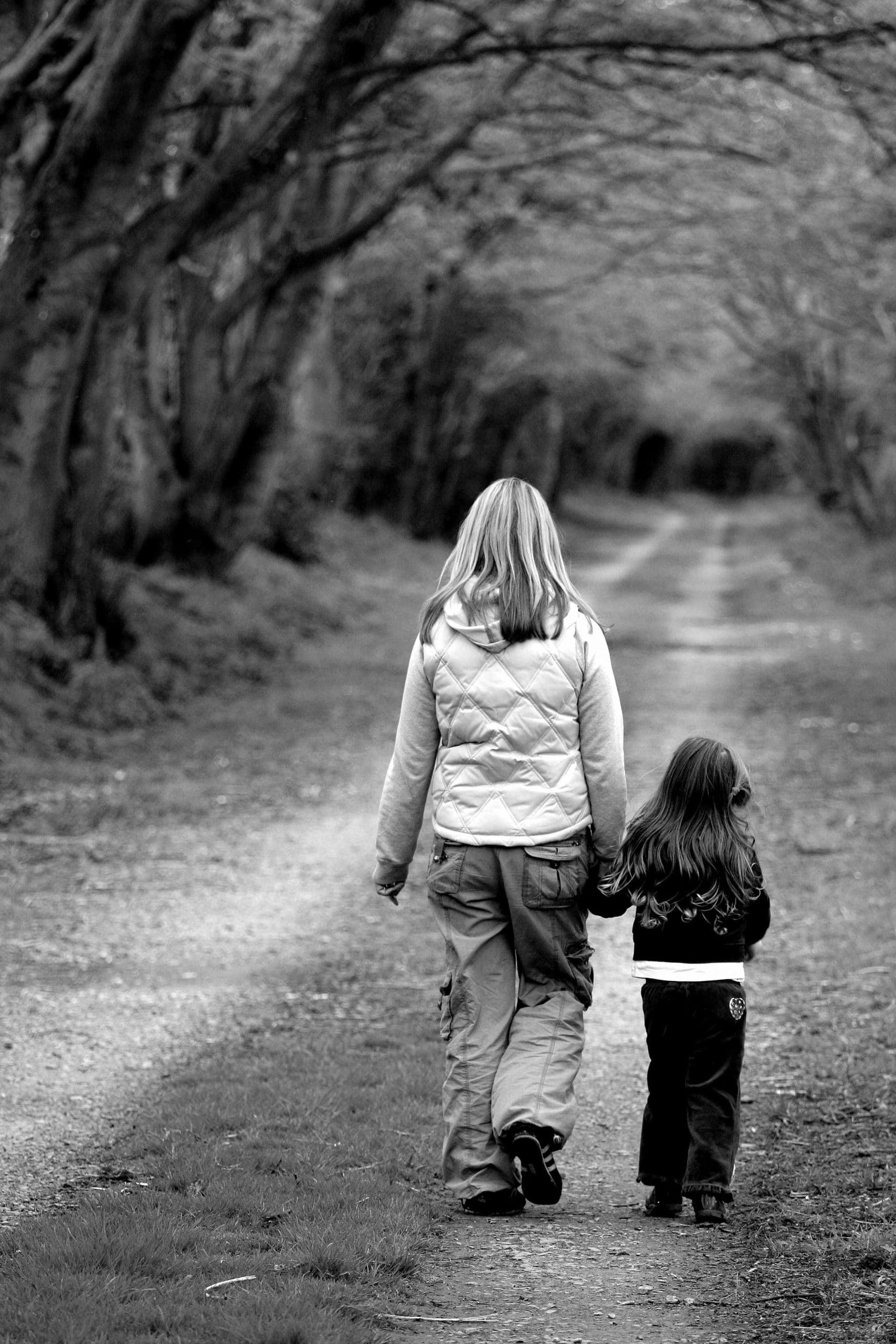Addiction is a mental illness. When a person struggles with an addiction it can affect every aspect of their life, including their ability to parent. Like other mental illness, addictions can be passed down by a combination of genetics and other biological factors (nature) as well as environmental factors (nurture). They can also be formed as a coping mechanism for another underlying mental condition such as depression, anxiety, and trauma. When a parent is struggling with an addiction they don’t always have the emotional capacity and the right tools to be present with their children in the way their children need to lead healthy and functional lives. Sometimes when parents themselves don’t have adequate coping mechanisms, it may be difficult for them to demonstrate these to their children. As such, adults of parents with addictions may not be equipped with having learnt positive coping mechanisms.
If you grew up with a parent who struggled with an addiction it is likely that it left a psychological mark. Children who grew up with a parent who struggled with an addiction often share some common experiences in adulthood. These are some common traits:
- People pleasing: You are more likely to want to please those around you in order to earn their acceptance.
- Conflict aversion: You are more likely to want to avoid conflicts so as not cause further disturbance and risk losing relationships.
- Hypersensitivity to rejection: The thought of being rejected makes you extremely anxious. You will do anything, including sacrificing your happiness, in order to ensure that you are not rejected by those around you. You are constantly aware of your actions to make sure you don’t upset people and risk losing them.
- Anxiety: You feel heightened anxiety in various situations, for example, in social settings, in relationships, or at work. Conflicts, negative feedback, the possibility of disappointing someone, making mistakes, performing publicly all make you anxious. You are constantly worried about being judged or put down for your shortcomings.
- Extreme independence: You feel you can and should only rely on yourself to meet your needs. You believe you need to be the protector, the more responsible one, and you are more likely to expect more from yourself than others around you (e.g. friends, partners, siblings, co-workers, etc.)
- General mistrust in people: You have a general feeling that people could hurt you or disappoint you, and therefore, shouldn’t be trusted.
- Unreasonable sense of responsibility: You feel a need to rescue people. When people are upset around you, you assume that it is your fault. When people close to you are suffering you assume you weren’t careful or protective enough of them or that you must have done something wrong.
- Emotion dysregulation: You have a hard time managing your own emotions such as anger, anxiety, or sadness. You may use substances as well in order to cope with your heightened emotions or use other avoidance-mechanisms to reduce pain, for example, working constantly, gaming, watching TV, or browsing the internet for hours on end to keep your mind occupied or numb you from your own suffering.
An unnatural role-reversal takes place when a parent struggles with addiction. Because they are sometimes not able to adequately take care of themselves, the responsibility falls on their children. Their children then feel as though they must take care of themselves as well as their parent. Here is often where extreme independence or an unrealistic sense of responsibility emerge. Just as a parent might feel responsible when something bad happens to their child, similarly, children may feel responsible when their parent is suffering. Unfortunately, humans are wired to make generalizations as a protective mechanism. Therefore, this sense of responsibility can be transferred to other areas of their life in adulthood.
Adults who grew up with parents who struggled with an addiction tend to have similar experiences to those who have experienced a trauma. Children require constant care and protection. Growing up in an environment with unpredictability and uncertainty can trigger anxiety in children. Living in such an environment over a long period of time can, therefore, be traumatizing. The impact of childhood trauma can linger well into adulthood as highlighted in the points above. Trauma has historically been defined as the psychological response to a single terrible event. In recent years, however, it has been found that trauma can also be the result of long-term exposure to a series of complex painful experiences. Sometimes this trauma can lead to the development of Post-Traumatic Stress Disorder (PTSD), but not always. One can struggle with the effects of trauma without necessarily having PTSD.
Relational trauma is especially common for adult children of parents who struggle with addiction. Children require physical protection as well as emotional protection from their parents. Decades of research into child development has found that a child’s bond with their parents plays an integral in their health and development overall. It has been found that the kind of bond, or attachment, a child creates with their parent will inform the kind of attachment they will have with their partners in adulthood. When a child grows up with an insecure attachment to their parent where they feel they cannot depend on their parent or feel safe around them they are more likely to feel similarly insecure in their adult romantic relationships. It is said that we gravitate towards whatever is familiar. In this case, those who have grown up with a parent with an addiction are more likely to seek out partners who also struggle with addictions.
As you can imagine, healing from the impact of having a parent who has an addiction needs to be multifaceted. It requires redefining how you view relationships, how you make sense of your own place in this world and unlearning how you deal with your own emotions. Healing requires taking inventory of the unconscious messages you may have picked up on over the years since childhood and learning more adaptive and healthy ways of relating with yourself and the world. In therapy, you may benefit from exploring how your interpersonal relationships could be improved. It may also be useful to determine some of the unhealthy coping mechanisms you have learned along the way and replace them with ones that better serve you. Lastly, you’ll want to learn to release yourself from your unrealistic and unreasonable sense of responsibility. that should never have been yours to carry. Most importantly, overall, you will learn to parent yourself the way you needed as a child.


